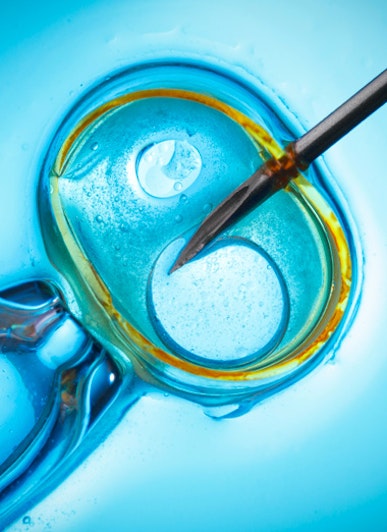Preimplantation Genetic Diagnosis (PGD)
A Preimplantation genetic diagnosis, or PGD, can detect a number of genetic defects that may affect embryos. In fact, PGD can detect over 100 genetic conditions and diseases. With over 40 years of combined experience, our doctors at Denver Fertility Care in Englewood, CO, offer a wide range of assisted reproductive technologies and therapies to help hopeful parents grow their families.
Who Should Consider PGD?
Couples who are at risk of passing on certain genetic conditions are candidates for PGD. You may wish to consider this type of testing if you or your partner:
- Are a carrier of single-gene disorders
- Are a carrier of sex-linked genetic disorders
- Have a history of recurrent pregnancy loss
In some instances, PGD can also be used in the gender selection process.
The PGD Process
The first step in the PGD process is in vitro fertilization (IVF). This treatment involves retrieving an egg from a woman and a sperm from a man. The egg is then fertilized with sperm in a laboratory. In three to five days, the embryos divide. At this point, the rest of the PGD process can be performed:
- Cells are collected from the embryos, after which the embryos are carefully frozen.
- Next, the DNA inside the cells is assessed for any genetic concerns. Typically, this step takes about one week to complete.
- After the healthy cells have been identified, the embryos is selected then inserted into the uterus via IVF.
- Next, the couple waits for the implantation process to begin. At the appropriate time, a pregnancy test will be administered.
- If there are additional viable embryos that were not used in the IVF cycle, they can be frozen for future use if you choose.
PGD can detect over 100 genetic conditions and diseases.
Benefits and Risks of PGD
PGD is an excellent choice for many patients, and the process offers a number of advantages. Since PGD is performed before the embryos are implanted into the uterus, patients can determine whether they wish to continue with the pregnancy. PGD also allows couples to consider having biological children when they may not have pursued pregnancy otherwise.
As with most medical procedures, there are also certain risks associated with PGD. For instance, while this process significantly reduces the risk of conceiving a child with a genetic condition, it does not totally eliminate this possibility. Furthermore, it is important to remember that there are some genetic diseases for which symptoms do not develop until middle age. PGD may not be a viable option for those with certain religious objections.
During a consultation, our compassionate staff will be happy to take as much time as necessary to help you determine if PGD is right for you and your family.
Contact Denver Fertility Care
Denver Fertility Care is here to help you experience the joys of parenthood, and we are dedicated to helping you reach your goals. If you are interested in learning more about PGD and how it can benefit you, schedule a consultation at our practice. Contact us online anytime or give us a call at (720) 465-5586.
Genetic Counseling Webinar
Igenomix for PGT-A (PGS)








